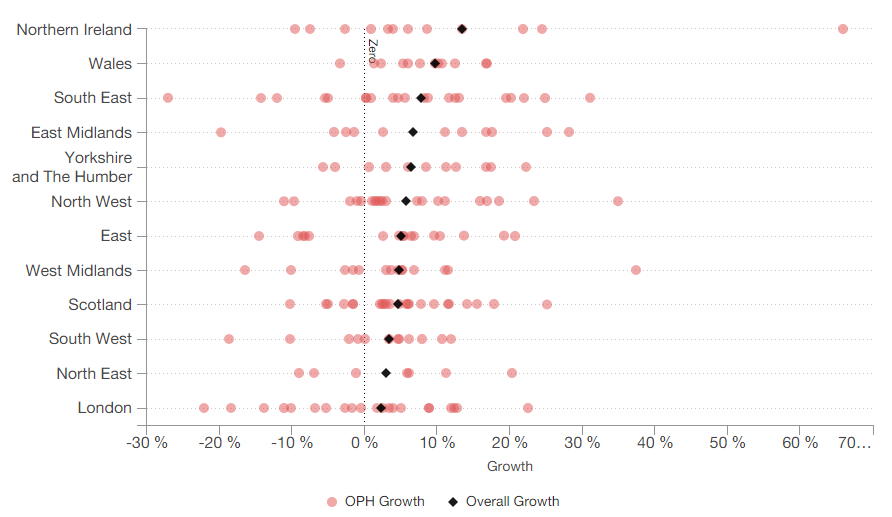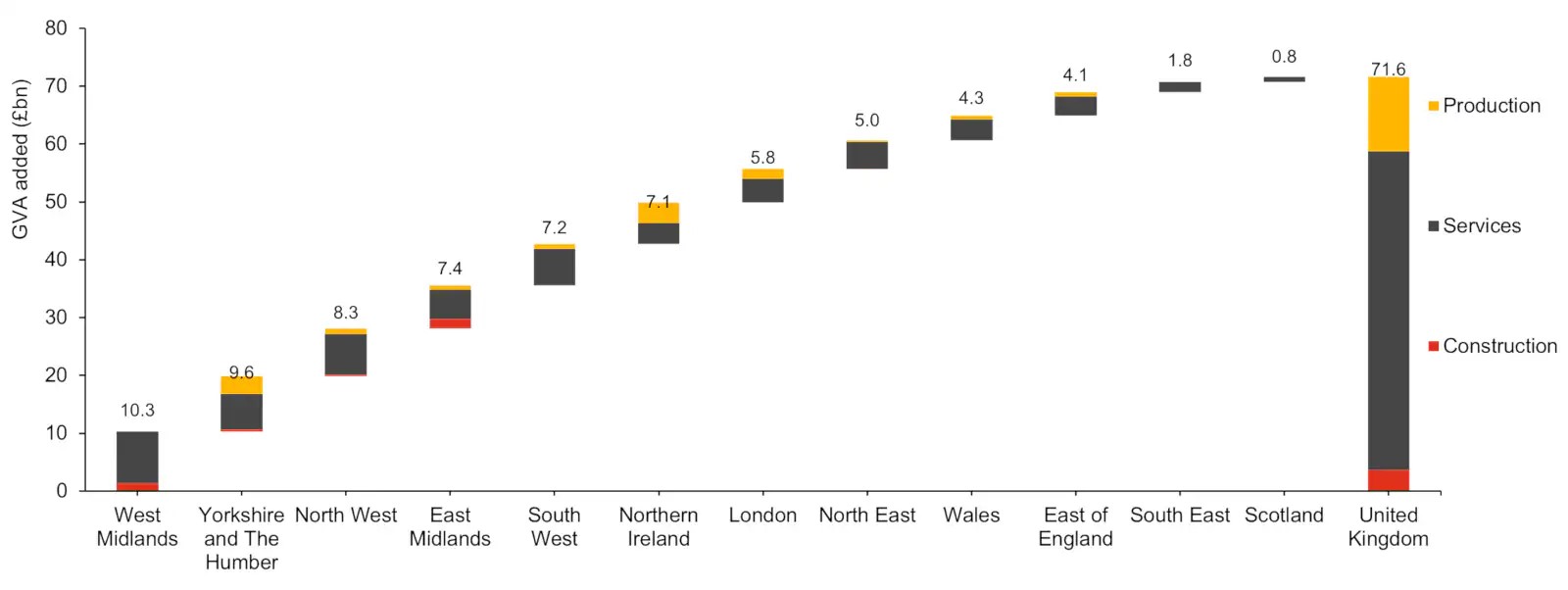Wales records second-highest productivity growth in the UK

Wales has seen a higher productivity growth than any other nation or region of the UK, except Northern Ireland, according to a new report.
PwC’s Industrial Manufacturing and Services Productivity Tracker, which analyses a decade of economic data to illustrate regional productivity trends, showed a 9.7% increase in Wales from 2011 to 2021.
Only Northern Ireland, with a growth rate of 13.5%, experienced quicker productivity growth in the same period.
PwC’s findings point to Cardiff’s rising productivity as a driver for Wales’ strong performance, focusing specifically on the presence of a City Deal, which gives local areas specific powers and freedoms to help them support economic growth, secure extra funding, create jobs or invest in local projects.
The report also points to partnerships with Bristol, which are helping to develop a wider regional cluster of skills, investment and strategic collaboration.
Wales’ productivity is buoyed by Cardiff’s strong industrial base, with a manufacturing Gross Value Added (GVA) of £91,000 per worker, compared to a UK average of £78,000 – over £40 per hour.
However, in 2021, Wales’ productivity per worker per hour (£33) still fell well below the national average, ahead of only the North East of England. PwC say that improving Welsh productivity to UK sectoral medians would add an estimated £4.3bn to the nation’s economy.

The Welsh capital also performed strongly in PwC’s Good Growth for Cities report, issued in May, jumping ten places to 20th as a result of its strong performance on indicators such as work-life balance and income distribution, and skills, especially in younger people.
John-Paul Barker, Regional Market Leader for PwC in Wales and the West of England, said: “Wales’ strong productivity growth demonstrates that it is possible to narrow regional productivity gaps – and as a result regional inequalities – over time. But it requires investment, and a group of local decision makers across all sectors of the economy to ensure it is used to unlock Wales’ unique economic characteristics.
“If local authorities, government and businesses are able to work together to bring Wales’ productivity up to the UK sectoral medians, it’ll result in a benefit of £4.3bn to the Welsh economy.”
The UK picture
Northern Ireland has the highest productivity growth rate in the UK (13.5%), whilst Scotland is the UK’s most productive manufacturing region (output per hour). London remains the UK’s most productive region overall.
Nick Atkin, Leader of Industrial Manufacturing and Services, said: “Our Tracker underlines the close relationship between strong productivity growth, talent availability and high skills levels, and nowhere is this more evident than in the significant leap Northern Ireland has demonstrated.
“Despite historically low levels of productivity, our data shows that this region has had the largest hike, no doubt due to its relatively high share of sectors experiencing growth like construction.
“We know that boosting productivity can bring significant benefits. In fact, by bringing production, services and construction productivity in under-performing regions up to at least the median sectoral levels, around £71.6 billion could be added to UK GDP.”
 £71.6 billion – The boost to UK GDP if sectoral productivity in some regions is raised to at least the industry’s median levels. (Source: PwC Economic Outlook September 2022)
£71.6 billion – The boost to UK GDP if sectoral productivity in some regions is raised to at least the industry’s median levels. (Source: PwC Economic Outlook September 2022)
He added: “If Northern Ireland and Wales continue to prioritise investment and are successful in translating this funding into efficiency, they are likely to see their significant boost to growth manifest into long-term high productivity.
“The good news is that with burgeoning shoots of strong productivity growth in places like Northern Ireland and Wales, it’s clear that the right mix of innovation, regeneration and development can transform regional productivity, boost prospects and tackle inequalities.”
Support our Nation today
For the price of a cup of coffee a month you can help us create an independent, not-for-profit, national news service for the people of Wales, by the people of Wales.







Andrew RT Davies will be devastated 😉
Waw in spite of Brexit and Westminster. Or because of brexit and Westminster?
In spite of a socialist Gov in Cardiff, or because of a socialist Gov in Cardiff? N Ireland has the highest growth, is it because they remain part of the EU single market or despite the EU single market.
In spite of Wasteminster and the B word
So we’re financially supporting England again?
Maybe now we can build some of our own hospitals and airports rather than relying on our neighbours.
Oh. You mean like we already do?
It’s a bit churlish to blame Y Senedd for not building airports and hospitals in a time it did not exist.
Who blamed anyone just don’t like sponging off the neighbours.
Please decide which identity you are posting as. When you switch halfway through a thread it gets quite confusing.
But I agree. England should stop sponging off us
How does this work, that Wales is a nation, and PwC has a “Regional Market Leader for PwC in Wales and the West of England”?
Also I thought this was supposed to be a study of ‘regional productivity’ but there is no discussion of the many various regions of Wales in it.